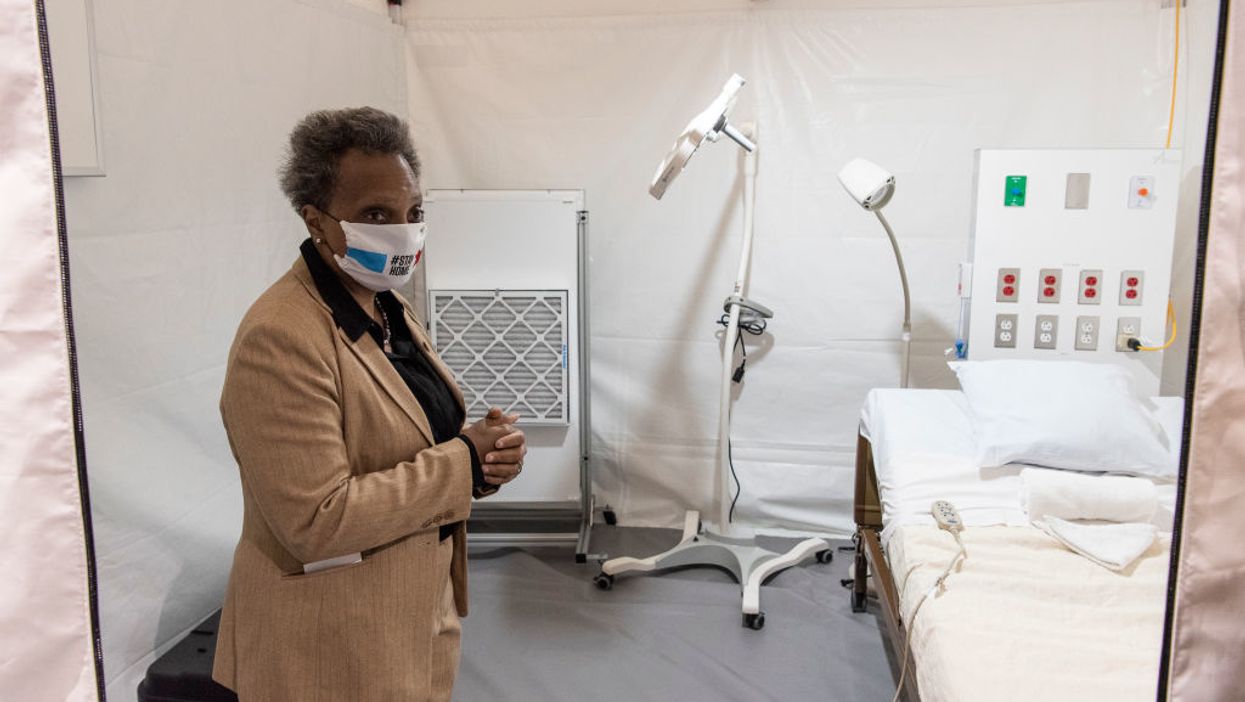
Tyler LaRiviere - Pool/Getty Images

That's $1.7 million per patient
A Chicago field hospital constructed to aid the city's health system during the coronavirus pandemic cost taxpayers $66 million and ended up treating just 38 patients before it closed down, the Chicago Sun-Times reported.
That means the emergency medical facility cost taxpayers roughly $1.7 million per patient — not exactly a bargain by any standards.
Nonetheless, Chicago Mayor Lori Lightfoot (D) and Illinois Gov. J.B. Pritzker (D) have previously defended the construction of the facility, calling it an important "insurance policy" at a time of "immense emergency."
"It's something I'm incredibly proud of," said Samir Mayekar, Lightfoot's deputy mayor for economic and neighborhood development. He insisted the money was "not spent in vain."
"Today, we are pleased to report that the curve is flattening, and our local hospitals and health care systems continue to operate with capacity, therefore, the McCormick Place [Alternate Care Facility] will stop operating in its clinical needs testing phase," Lightfoot and Pritzker said in a statement announcing the end of the facility's operation on May 1 — just 22 days after it began accepting patients.
"We thank all our dedicated partners for their hard work and partnership in creating one of the nation's best operating and largest [ACFs]," the two officials added, a claim that hardly stands on its own from a financial perspective.
New details from the Chicago Sun-Times report raise further questions over the decision build the facility at such a high cost.
According to interviews and records obtained by the outlet, the city-state governmental body known as McPier, which was in charge of the project, received proposals for construction from three different companies, but ultimately chose the priciest of the options:
McPier solicited proposals from three giants in construction: Walsh, Pepper Construction and Power Construction Company. And it hired Walsh even though Power said it either would forgo any fees or donate them to pandemic relief because it didn't want to profit from the pandemic. Walsh charged $65.9 million, including more than $5.1 million in fees, records show.
An official with the U.S. Army Corps of Engineers — which hired McPier to build the facility, for which the federal government is covering at least 75 percent of the costs — said in internal emails that Power or Pepper was the best choice. But that decision was left to McPier, which picked Walsh, saying its rates were not "significantly different" than the others and that it "had the most experience . . . working with the [Army Corps] and working on emergency projects."
The decision process was likely a frenzied one, driven by hysteria surrounding the early stages of the outbreak as state and local officials took immediate action to prevent area hospitals from being overwhelmed.
After all, the McCormick Place field hospital is not the only pandemic facility that proved to be a waste of taxpayer dollars in retrospect.
A temporary pandemic hospital constructed at the Billie Jean King Tennis Center in New York City cost taxpayers $52 million to build and closed a month later having only treated 79 patients.
Hopefully such boondoggles will help leaders take more measured approaches in the future, but don't hold your breath.